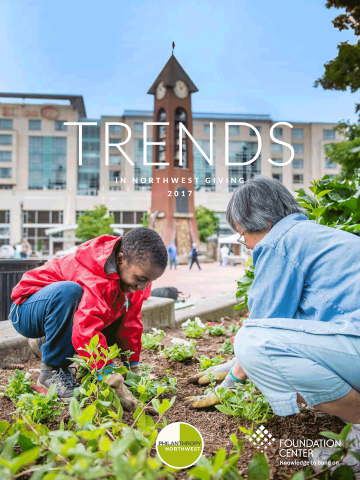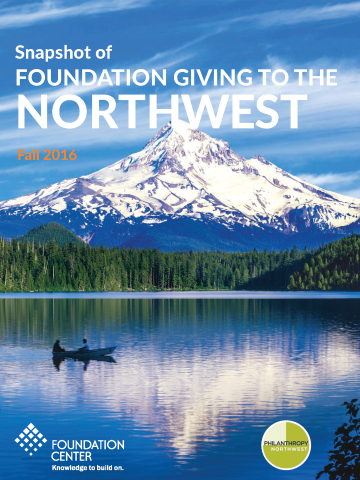CAFEE partners will meet in Yakima for the third meeting of the year.
This is a sub-group of the Building Community Philanthropy Initiative. This is a closed group.
CAFEE partners will meet in Yakima for the third meeting of the year.
This is a sub-group of the Building Community Philanthropy Initiative. This is a closed group.
On a recent trip to Anchorage, after engaging with local philanthropic leaders and learning about Alaska’s unique attributes and challenges, it dawned on me the many lessons funders in the lower 48 can glean from Alaska’s philanthropic leaders. In a geographically large state with a small population, funders wear multiple hats and coordinate easily across organizations to address formidable challenges – including homelessness, lack of affordable housing and healthcare services, access to high-quality P-16 education, workforce development and much, much more.
From this recent visit and in my role with Philanthropy Northwest over the past year, I’d like to share my observations about the unique positioning of philanthropy in Alaska.

For those in the technology industry, Boise is nearly synonymous with Micron, one of the state’s largest employers. Micron Foundation is a major force in the state’s corporate philanthropy, and Philanthropy Northwest is thrilled to announce its lead sponsorship of the upcoming Annual Conference in the City of Trees October 2-4.
For this sixth edition of "Trends in Northwest Giving," we are presenting this report in collaboration with Foundation Center, which collects grants data directly from organizations across the Northwest and nationwide. This partnership enables us to tell a story based on a larger pool of funders, in three parts: key findings, based on a snapshot of $1.8 billion granted to our region by more than 4,000 funders in 2014; trends over time, based on a subset of 1,387 funders that reported data for both 2012 and 2014; and state-by-state variations.

U.S. foundations make significant investments in communities across Alaska, Idaho, Montana, Oregon, Washington and Wyoming. This snapshot captures support from a sample of 512 foundations for a range of issues and focus areas in Philanthropy Northwest’s six-state region.

Everyone experiences feelings of professional disappointment sometimes. In September, I had to miss Philanthropy Northwest’s 2016 conference in Montana, after months of working with the team to help put it together. When I heard our staff’s stories and saw the photos, I felt I had fallen behind on my philanthropy learning curve — and missed a a lot of fun celebrating our 40th anniversary! But I had a very good reason: I was getting my long-awaited master’s degree in psychology. Growing up in Russia with Lenin's ideology of “Learn, Learn, Learn” hanging on a poster in every classroom, I absorbed the importance of a good education from a young age. As an adult, I also think about the importance of an integral education: a comprehensive and continuing process that does not stop at any point in life.
Our "virtual roundtable" interviews feature a group of leaders from across our network who work on a common issue area, illuminating the diversity of place-based approaches to the shared topic. We kicked this series off in February with the CEOs of five healthcare conversion foundations, then continued in March with the Pacific Northwest's seven statewide nonprofit associations, April with four arts funders, May with five rural funders, June with four philanthropic banks, and July with CEOs of five foundations supporting our Momentum Fellowship, a leadership program designed to expand our sector's diversity, equity and inclusion. For August, we interviewed leaders from five foundations working to improve high school and college graduation rates: Ben B. Cheney Foundation, The CIRI Foundation, College Spark Washington, Pride Foundation and Dennis & Phyllis Washington Foundation.